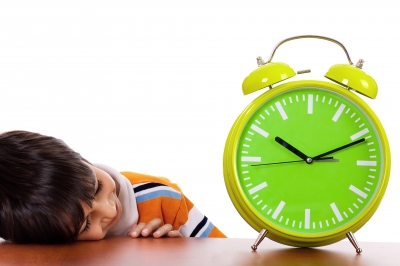Sleep Problems and Special Education Needs

Sleep problems in preschoolers may increase the likelihood of a child needing special education services later in life. That’s the finding of a study published in the September 2012 issue of Pediatrics.
Sleep Problems? What Kind of Sleep Problems?
I admit my first thought upon hearing the news was similar to my response to the study that showed regular school attendance increases kids’ learning. It took a study to prove that? Somebody could have saved a lot of money by asking teachers about the correlation between attendance and learning.
But a closer reading of the sleep problem study revealed a more complex issue. At first glance, I erroneously believed the sleep problem was kids getting too little sleep. Going to bed too late. Interrupted sleep. Stuff like that. But I was wrong. This study looked at problems like sleep apnea and snoring in infants, toddlers, and preschoolers.
Sleep Problem and the Special Education Correlation
The study, authored by Karen Bonuck, a professor at Albert Einstein College of Medicine’s Department of Family and Social Medicine, in New York City “found that kids who suffered from problems like sleep apnea and snoring in their infant, toddler and preschool years were more likely to need special education services for conditions such as speech and behavioral problems a few years later.”
The study found an association between the two factors, but it did not prove cause and effect. An article in U.S. News and World report says, “The higher risk of disabilities could be a statistical fluke, or something else besides sleep problems may explain it.” However, the article goes on to say, “Research has shown that sleep deprivation disrupts the making of memories in the brain.”
Now that’s alarming! Because, as the article states, “Sleep is not just ‘rest’ where the body needs to restore energy. The brain is active 24/7, and we now know that not only important aspects of learning and memory happen during sleep, but emotion regulation is also dependent on sleep. “No wonder pediatricians are being advised to screen for early sleep problems and address them.
Sleep Problems at Your House
What do you think of the study? Do the results surprise you? Do your young children have sleep problems or did they when they were younger? How did you deal with them? What did your pediatrician advise? Leave a comment about your reactions to this study and how the findings could impact your child.
Do you like what you see at DifferentDream.com? You can receive more great content by subscribing to the quarterly Different Dream newsletter and signing up for the daily RSS feed delivered to your email inbox. You can sign up for the first in the pop-up box and the second at the bottom of this page.
By Jolene
Jolene Philo is the author of several books for the caregiving community. She speaks at parenting and special needs conferences around the country. Sharing Love Abundantly with Special Needs Families: The 5 Love Languages® for Parents Raising Children with Disabilities, which she co-authored with Dr. Gary Chapman, was released in August of 2019 and is available at local bookstores, their bookstore website, and Amazon. See Jane Dance!, the third book in the West River cozy mystery series, which features characters affected by disability, was released in October of 2023.
2 Comments
Submit a Comment
Subscribe for Updates from Jolene
Related Posts
The Lessons I Learned while Raising a Child with EA/TEF
Jolene Philo reflects on a lifetime of lessons learned while raising a child with EA/TEF and shares the insights she’s won.
Looking Back at Your Child’s EA/TEF Journey
Looking back at your child’s EA/TEF journey can give parents a new perspective about past events. Guest blogger Maggi Gale shares how her look back clearly showed her how God was with their family during their daughter’s very unusual first weeks of life in 2002. Three...
How Do I Let Go of My Adult EA/TEF Child?
Valeria Conshafter explores the question “How do I let go of my adult EA/TEF child?” for EA/TEF Awareness Month.






How frustrating for all of you. Is the lack of sleep something common in children with autism, Amy?
My daughter is medicated to be able to sleep (with 2 different drugs). I have found that of all our medical issues, sleep escapes the physicians the most. They just don’t know what to do about it or how to fix it. They never want to research the cause, they just want to treat the symptoms.
It is very frustrating, but we are “dealing” with it and we see first hand how sleep issues affect the quality of not only our daughter’s life but our whole family’s life as well.